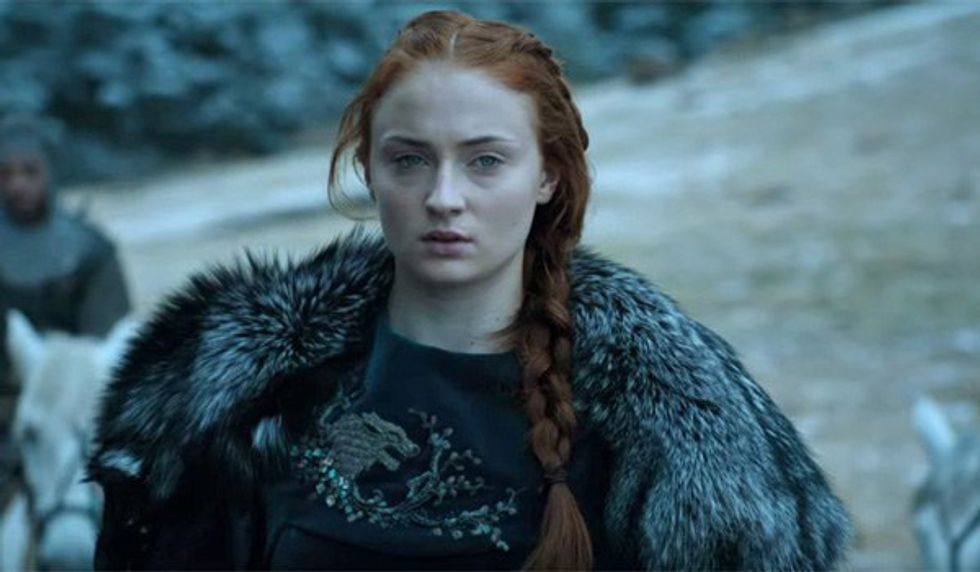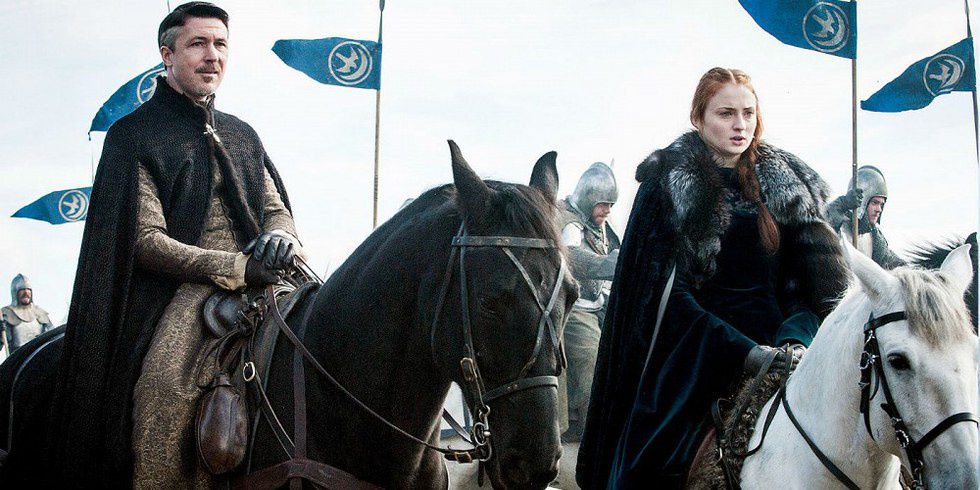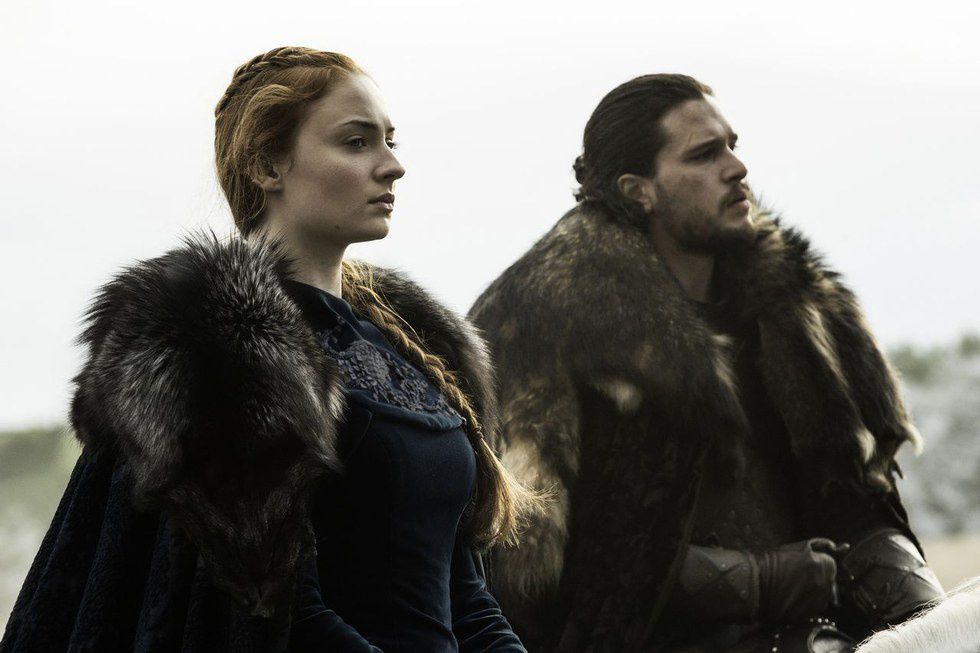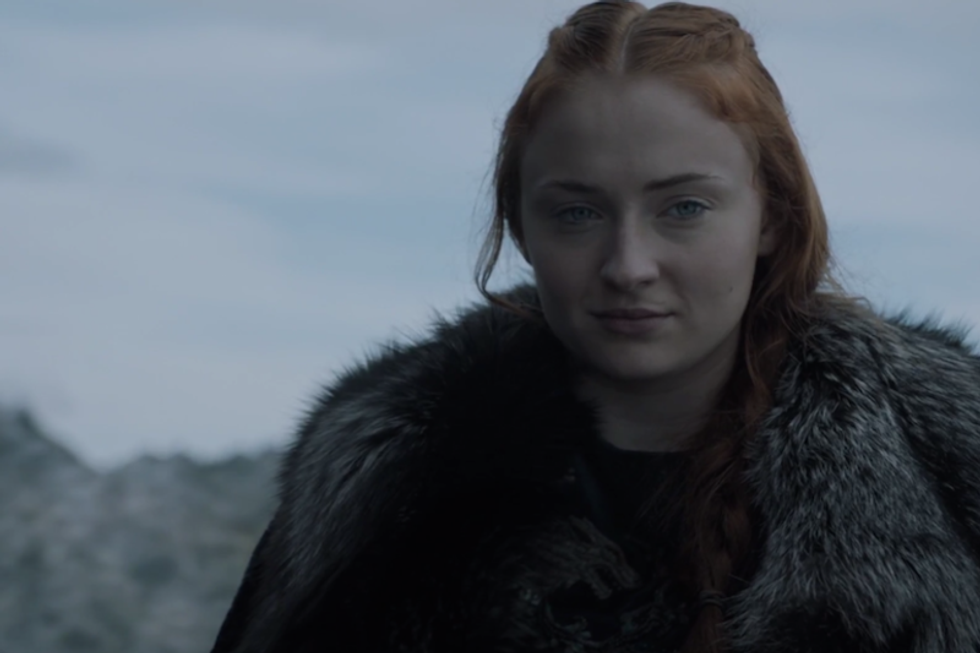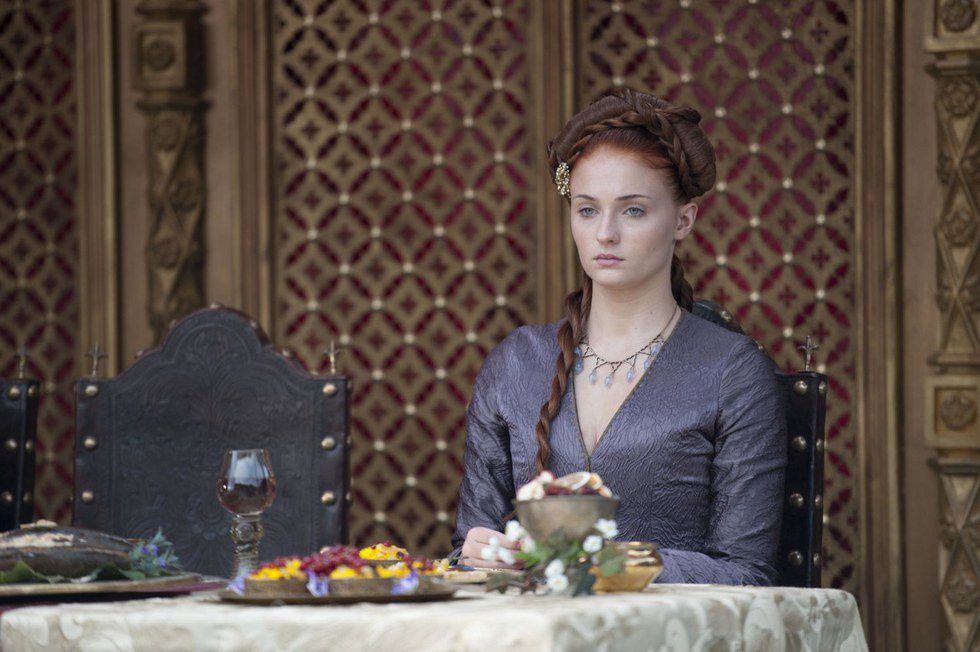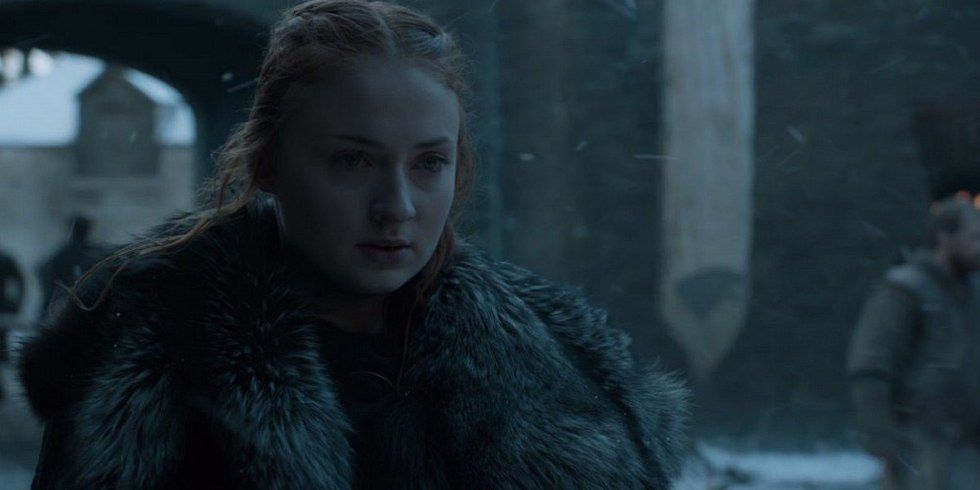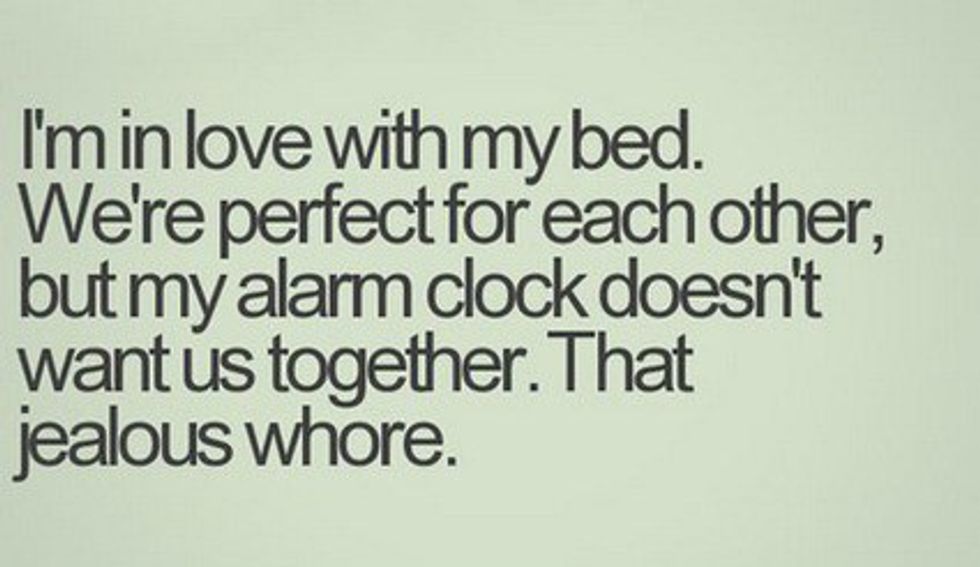The penultimate episode of Game of Thrones aired last week and everyone cannot stop talking about how impressive it was. Impressive, I can understand. The cinematography was some of the best I've seen on Thrones and the scale of that battle sequence was unlike anything you've ever seen on television. It was epic Hollywood feature film level of production and it certainly was an awe-inspiring visual feat, however the production value of Thrones has never been something called into question. Although, the writing this episode should be. The writing on this show has gotten progressively worse, but what has been really taking a back seat to the spectacle the writing seems to favor are all the ingredients for a good story; complexity, character development, and thematic scope. This past episode really embraced that and in doing so, elicited perhaps some unanticipated implications. The writing has been building up to it for a while and it's the pattern that is truly the issue, but Thrones has had an issue lately with it's depiction of violence as, unlike the texts it is based off of, it seems to condone it rather than condemn it. This all comes to light with the final scene where Sansa Stark sends Ramsay's starving hounds onto his tied up, bleeding body to devour him to death. As the hounds start tearing at his throat, she walks away, smiling to herself. It's a moment that got many cheers last week, but instead of viewing the moment through the lens of tragedy that this girl has become so numb and immune to violence, that her experiences have turned her into this person who takes joy in hearing a man, however despicable of a man, be torn apart, the show celebrated it and pronounced it empowering and exciting.
No one is saying she should have kept Ramsay, a murderer, kinslayer and her rapist, alive and been merciful. Everyone agreed a disgusting man like Ramsay should have been killed. He's dangerous, he's a loose canon, and House Bolton is basically decimated; the line is definitely wiped out. There's no reason to keep him alive. Most of everyone’s arguments, however, are geared towards the fact that she chose to kill him in an incredibly brutal way and reveled in said brutality. Look at her deadpanned expression and then that smile on her face after watching a man (even one as disgusting as Ramsay) be ripped apart by dogs. It's the act itself, not the justice of killing him that she is relishing in. No matter how much she wanted it, she shouldn’t be numb to the violence. It's a theme in Thrones that violence equals empowerment, however, it's not badass or cool to be numb to violence, despite what the show runners believe. They thought that moment was empowering and weren’t even thinking about exploring the fact that what she was doing was incredibly traumatizing and exactly the kind of “justice” Ramsay would deal out. What happens to the northern ways? Would that not have felt like a more powerful statement and a better parallel than this? This is so far away from who Sansa’s character is, which is tragic, yet we're supposed to feel good about that moment. A lot of the cheers from the show watcher community came from the fact that Sansa, a girl whom they previously thought to to be "weak","catty," and "annoying," became the person they thought she should be. This is the version of "strong" that the show projects and it does have severely worrying implications. Despite this being fiction, fiction influences reality and this is a fictional show with a wideout reach and creators that consistently tout the story as truthful and shocking "realism". Thus, it's not only damaging in terms of influence on their audience, but in terms of a writer's obligation to tell a story through a specific lens, we have to look at what the writing is saying to understand how affective it can be.
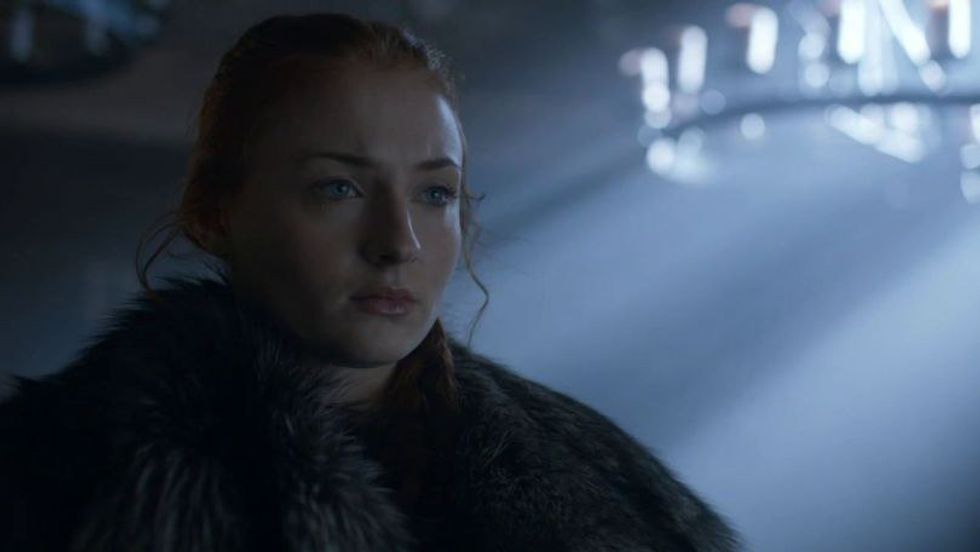

I do just want to say don’t speak for every survivor. I don’t speak for all of anyone. Every single person is different. I’m not here to say that someone can’t find this empowering. I don’t have ownership over this scene and I would never claim to. I’m just stating my opinions and why in the greater picture, this show is damaging and this scene piles on top of other scenes and other characters adding up to a greater worrying implication.
Also, in terms of thematic relevance and parallels, this was not done in the old way of the North, and frankly, I think seeing that, or seeing the unraveling of that train in the Starks as a negative, would have been more effective. Ned Stark would never agree or take pride in his chid setting wild dogs on a man tied to a chair so they could eat him alive. “The man who passes the sentence should swing the sword." That is the quote. Ramsay most definitely should have been killed, and too right should that decision come from Sansa. However, since when is gratuitous violence honorable? Honor isn't all that matters, but the north, more more specifically the Starks, are all about honor. They were raised on it. This was not inline with that sense of justice, yet already there are countless gifsets and photosets highlighting all the Stark children dealing out northern justice and adding this event as apart of that. If Sansa called for someone to bring a block to have Jon chop of his head, all the while passing his sentence and declaring his death, that would have been a parallel. This isn’t a parallel to really anything, except Ramsay’s own methods. I’m not saying she’s “as bad” as him. Ramsay’s despicable and she’s been a victim of his violence and abuse. However, how are we supposed to feel good that she would have become someone who seeks justice in pure savagery? She smiles. How can you not see a SMILE as reveling? And it’s when the smile occurs. It’s not later when she takes a breath and realizes she doesn’t have to look behind her back every second of her life in fear. It’s when she’s listening to dogs ripping apart someone’s face. She’s taking pleasure in the violence and the act, not just the death. To deny it is to deny what the show runners’, actors’, and director’s intentions are. Sophie Turner, the actress who plays Sansa Stark, gave an interview after with EW, in which she said “It’s so great to be able to have my first kill.” It’s so haphazard, as if now she’s finally become the "badass" she should be. This scene and this numbness to violence is in no way painted as a negative. If that was the case, it would be another way in which the scene would work. As a writer and someone who comes from a film background, implication and framing is everything. People can be violent, they can develop into violent and crueler people, yet we have to see the tragedy in that, not the reward. You can read all you like into a moment but if it’s not actually framed an executed in a certain way, it makes it clear that that isn’t the story the writer’s are trying to tell.
The story they are trying to tell is one of violence. Sansa isn’t the only character who is supposed to tell the tale of the futility of violence. It’s a theme. It’s supposed to be apparent in every storyline and in every character, whether they are violent or not. It’s the framing of said violence and the outcome of said violence that matters. Ellaria Sand’s quote from A Dance With Dragons is ever so relevant.
“I saw your father die. Here is his killer. Can I take a skull to bed with me, to give me comfort in the night? Will it make me laugh, write me songs, care for me when I am old and sick?”
Violence doesn’t change what happened. It can’t. It’s one of the most prominent themes present in Martin’s work and it can’t be dismissed or ignored. It's basically what the entire series is built upon. Sansa isn’t here to teach us that lesson, but the show and story are as a whole. Yes I agree the context does matter and in this context, she’s seeking vengeance not justice. Justice is reading him his rights and then swinging the sword that would behead him. Vengeance is seeking something in return for what was done to you and on that same level. This was emotion-led (as is understandable) but that’s not justice. Justice is led by the law. Vengeance is led by emotion. Vengeance is to be vindictive where as justice is to be vindicated. This act wasn’t just about killing Ramsay. If that was the case, she could have just had Jon chop off his head. This was about retaliating.
But, to dissect the scene on it’s own, this just isn't in character for Sansa Stark, who has an arc that is important to tell. The Sansa Stark whom is learning the game of thrones, whose empowerment comes from her empathy, which is just as valid and just as strong, wouldn’t and shouldn’t take pleasure in this. In A Clash of Kings Sandor says,“Don’t tell me Lord Eddard Stark of Winterfell never killed a man.”
“That was his duty. He never liked it,” Sansa replies. Yet, the show runners and the actress and actor all saw this moment as Sansa taking pleasure in her vengeance. Why else would she smile in THAT moment? Smiling later, sure? Smiling while listening to dogs ripping apart a human being?
This scene which was clearly meant to be empowering and has many others cheering, felt wrong. This is the same girl that was still able to be horrified at the sight of Joffrey's death while still wishing for it! Joffrey who had abused her and had his kingsguard hit her bloody whenever he was displeased, who wished to present her her brother's head, who was responsible for killing her father, yet the humanity in her still can't get the gruesomeness of his death out of her head, as exemplified by her chapter after the Purple Wedding;
"He had not been dead when she left the throne room. He had been on his knees, though, clawing at his throat, tearing at his own skin as he fought to breathe. The sight of it had been too terrible to watch, and she had turned and fled, sobbing. Lady Tanda had been fleeing as well. "You have a good heart, my lady," she said to Sansa™. "Not every maid would weep so for a man who set her aside and wed her to a dwarf." A good heart. I have a good heart. Hysterical laughter rose up her gullet, but Sansa™ choked it back down."
She couldn't revel in his death. It was "too terrible to watch", despite the fact that she wanted it. Her hysterics rise up because her emotions are so heightened and seeing someone die right in front of you, in such a gruesome way, despite it being a person who hurt you consistently and took everything you love from you, is upsetting.
"The bells were ringing, slow and mournful. Ringing, ringing, ringing. They had rung for King Robert the same way. Joffrey was dead, he was dead, he was dead, dead, dead. Why was she crying, when she wanted to dance? Were they tears of joy?"
She questions are her tears tears of happiness because she doesn't know. It's exemplary of how well Martin writes aftermath, which this show consistently fails to do. Instead of what was basically a rape revenge fantasy portrayed on our screen, in the novels when faced with the death of her abuser, we have someone who has been abused and their abuser had just perished right before their eyes...yet she's crying. She's happy he can't hurt her anymore, but it doesn't erase the fact that watching someone's life be sucked out of them, breath by breath as Joffrey's had, watching them claw at their throat for air, is terrifying to witness. It further illuminates and supports the theme in Martin's writing of the futility of violence and war. It doesn't change anything that happened in the past. It doesn't fix it.
In her next chapter, she recalls a dream she had:
"She dreamt of Joffrey dying, but as he clawed at his throat and the blood ran down across his fingers she saw with horror that it was her brother Robb."
The fact that in her dream in the book, she parallels Joffrey’s death with the death of a brother she loved just goes to show that despite her happiness to get away from him and despite the fact that she is relieved he can never hurt her again, his death is still tragic. He was a child, clawing at his throat, unable to breath, slowly dying in front of her, and it’s sad. She feels it’s justice that he died, but cannot force herself to take joy in the circumstance and imagery of his death. She’s happy to get away, she’s happy to not have to be at his mercy every again, but the atrocity of watching a child tearing at their throat for air, turning more purple with every breath haunts her.
The whole thing with Joffrey’s death and why it was done so beautifully (and I think the show conveyed this in the episode where it happened) was that it was supposed to be sad watching this child die, despite the fact that you hated him and previously wished for it to happen. However, according to the show, isn’t it empowering and cool to have Sansa employ the same methods of torturous and gruesome violence that she and many others suffered at the hands of her abuser?
“If I am ever queen I will make them love me.”
That is who she is. She’s not a beacon of virtue. No one is saying that. That would imply that she’s a one dimensional character and not a human being with flaws and strengths. However, we’re supposed to see her as better. She’s empathetic. It’s who she is and it’s what makes the difference between our heroes and our villains despite the multiple POV’s in the books. Martin has stated before that Tyrion is a villain, yet he's complex and multi-dimensional so we feel for him. It's clear, however, that Jon is not. If it came time for battle between the Starks and the Lannisters, we’d feel complicated emotions because George gives such dimensionality to his characters, they are all quite morally grey and we understand them all, however, I think it’s safe to say we would want to route for the Starks. We want the Starks to come out on top and it’s why they most likely will in some form, because they are our heroes, in the most basic sense of the word. They are our protagonists in a world that doesn't necessarily have the idealized version of heroes and villains, but has people whom we believe in. It’s why this episode was supposed to be a big victory we’ve been waiting for. To see our "hero", someone whom was defined by their empathy and compassion, take pleasure in torturous killing makes everything come into question. If we were supposed to be disturbed by this, then I would say this scene was successful and that's a perfectly valid outcome of all she's been through. Judging by what has come out of the creators and actors, that is not what we are meant to feel.
However, even if this scene happened, even if this was the type of “justice” she dealt Ramsay, she should still be perturbed by it. People are complex. Someone can be disturbed by something and still be appreciative that it happened. A lack of empathy and compassion isn’t something I find empowering. She could be unsettled by the act and her walk away could even convey that. If she didn’t smile. If she walked away, disturbed, not wanting to watch it and then, maybe a smile was allowed to grace her face later, somewhere else, when she can take a moment to see that she’s actually safe and she’s home.In that context, in that framing, then I think the scene itself could have even worked. Or even if it wasn't a smile, but a sigh of relief when she’s walking the halls of Winterfell again. She’s relieved that Ramsay can never harm her again, but what he did to her still happened. It’s more complex and more powerful to see her struggle with the violence of it, feeling worse but better for it. She was happy to no longer suffer at the hands of Joffrey but disturbed by the violence of his death. It's her first kill, as Sophie Turner puts it, and that changes someone. The same way I think it would have been more emotional if someone forced Jon to stay back when Rickon was running because it was a clear trap.
The show runners literally stated that Sansa walking off and smiling (from watching a person get eaten alive by dogs) was one of their favorite moments they’ve ever filmed, which only further highlights their refusal to understand Martin’s constant theme of the futility of war and violence, as well as his subversion of the fantasy tropes of revenge and death. The fact that they think her moment of reckoning where “This isn’t the little girl who wanted to dress up like a princess anymore,” is empowering furthers their unwillingness to recognize the power in different kinds of female strength. Sansa’s strength has always been her empathy and she uses the dreams she used to dream get by and manipulate the situations around her. It becomes the death of the dream of courtesy but the manipulation and use of the idea of it. However, just as is always the case; murder, torture, and violence are the only forms of empowerment they seem to champion as we’ve seen it time and time and again be it with Dany, Yara, Arya, or now with Sansa.
Instead of Ramsay claiming to have had an effect on Sansa and then following through with that by seeing her revel in his torture methods to seek vengeance, how much more powerful would it have even been to turn one of his other claims on his head. He says his dogs are loyal to him, but it’s one of the themes that should have been threaded throughout the episode. Ramsay has done nothing to earn anyone’s loyalty. Not his men and certainly not his dogs. When he was allowing his men to shoot arrows into the battle, not knowing what side they were hitting, there should have been repercussion. Perhaps, we could have seen men seeing fellow men of their house fall as arrow fodder that people on their side shot. Would this whole battle not have worked better and said more if Ramsay really was his own undoing? His men have no reason to be loyal to such a loose canon who murdered their old warden and their new (his own father). If he wasn’t such a villain sue and completely succeeded until the odds against him were so insurmountable that there was no question of his downfall, it would have made more sense thematically. It’s more horrific to see someone so flawed come to power, but that’s the point. That would make this whole notion of him being his own undoing more clear. If it was threaded throughout; If some of his northern lords finally started “remembering” and dropped ranks and large chunks of them stop fighting when they see the Vale army riding in; If Winterfell was opened for the Starks when Ramsay returned because the odds are against anyone who sides with him at this point; If the North ever truly remembered.
In reality, this show is not good at writing aftermath, it’s not good at writing repercussions and it’s not good at dealing with abuse. It’s the same show that had Yara’s put up or shut up method of “therapy” (that’s the word they used) work. Yeah they didn’t ignore the fact that Sansa was raped as many feared, which is great, but that should be the bare minimum. They certainly ignored Jaime raping Cersei or even the toxicity of their relationship in general for the past three seasons. They even continually have said that they didn’t bother to take in any of the criticism given to them last season and have not changed one word of their script in reaction to it . Their writing of Sansa has been a rollercoaster ride ever since Season 1, however this just piles on to the growing patter of glorifying violence as empowerment and their refusal to explore the theme that Thrones is built on. The futility of violence, war, and revenge are what make Thrones so divergent from the general fantasy genre and the tropes that plague it, but the show seems adamant to dismiss it.


